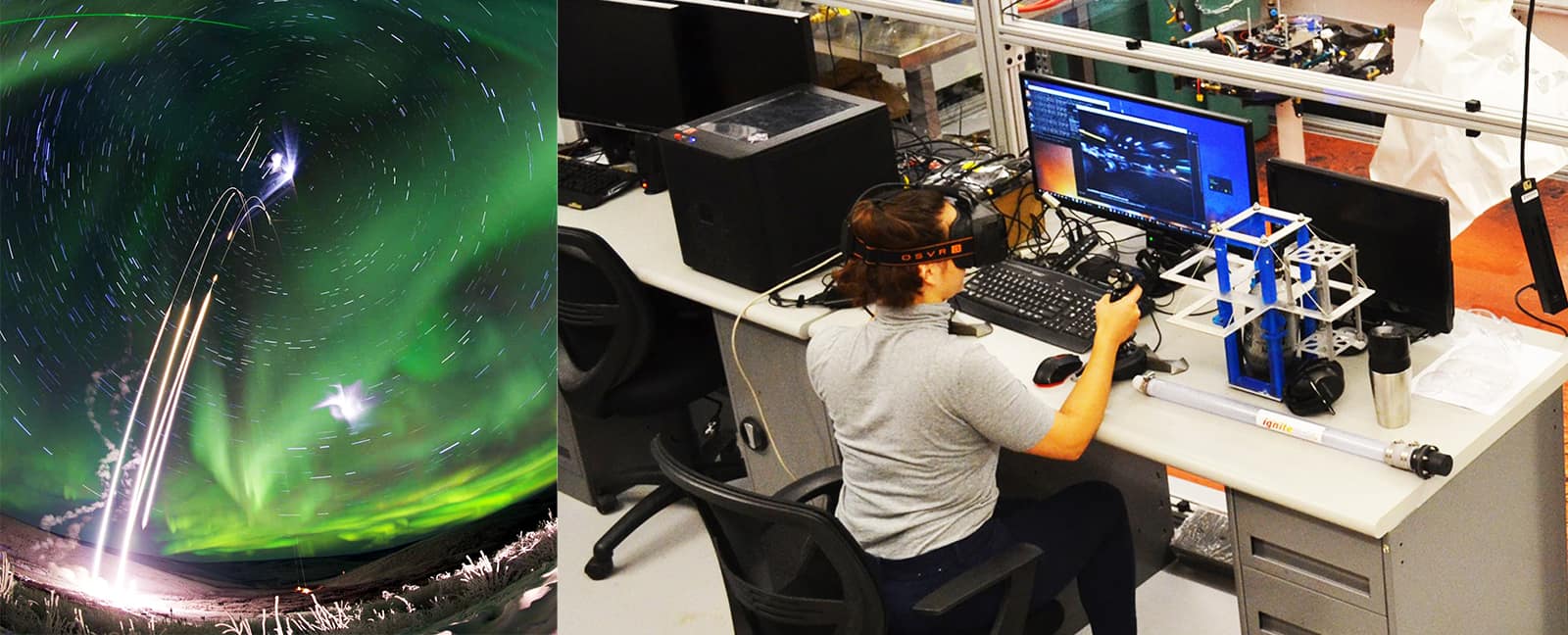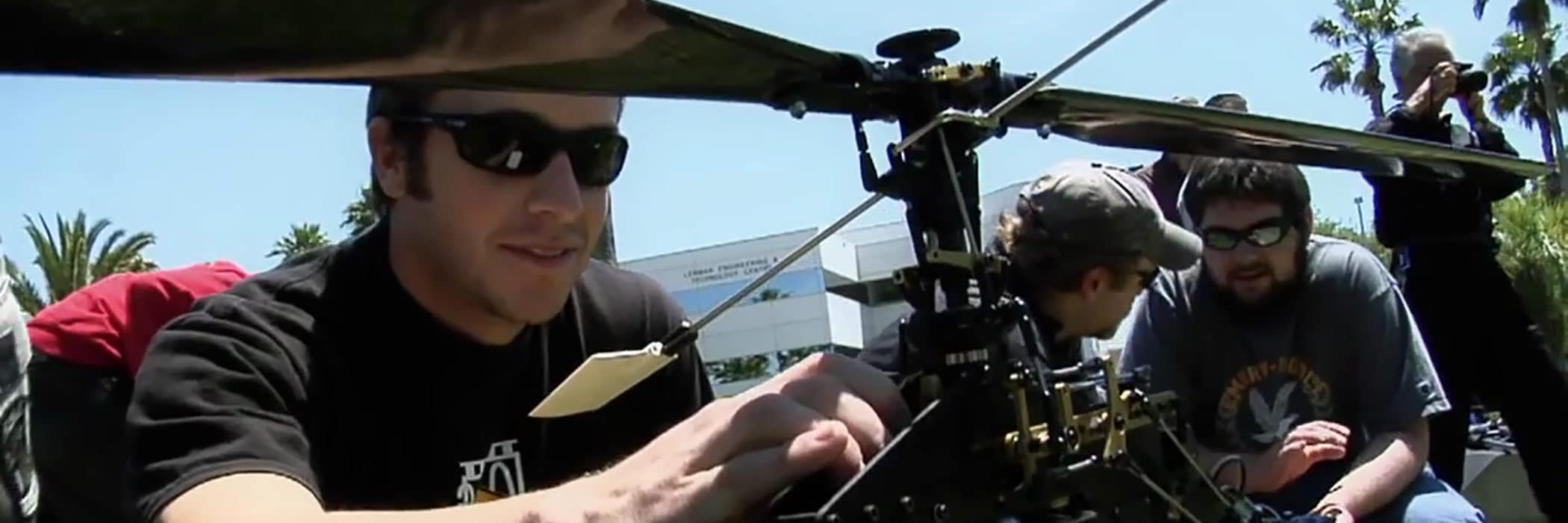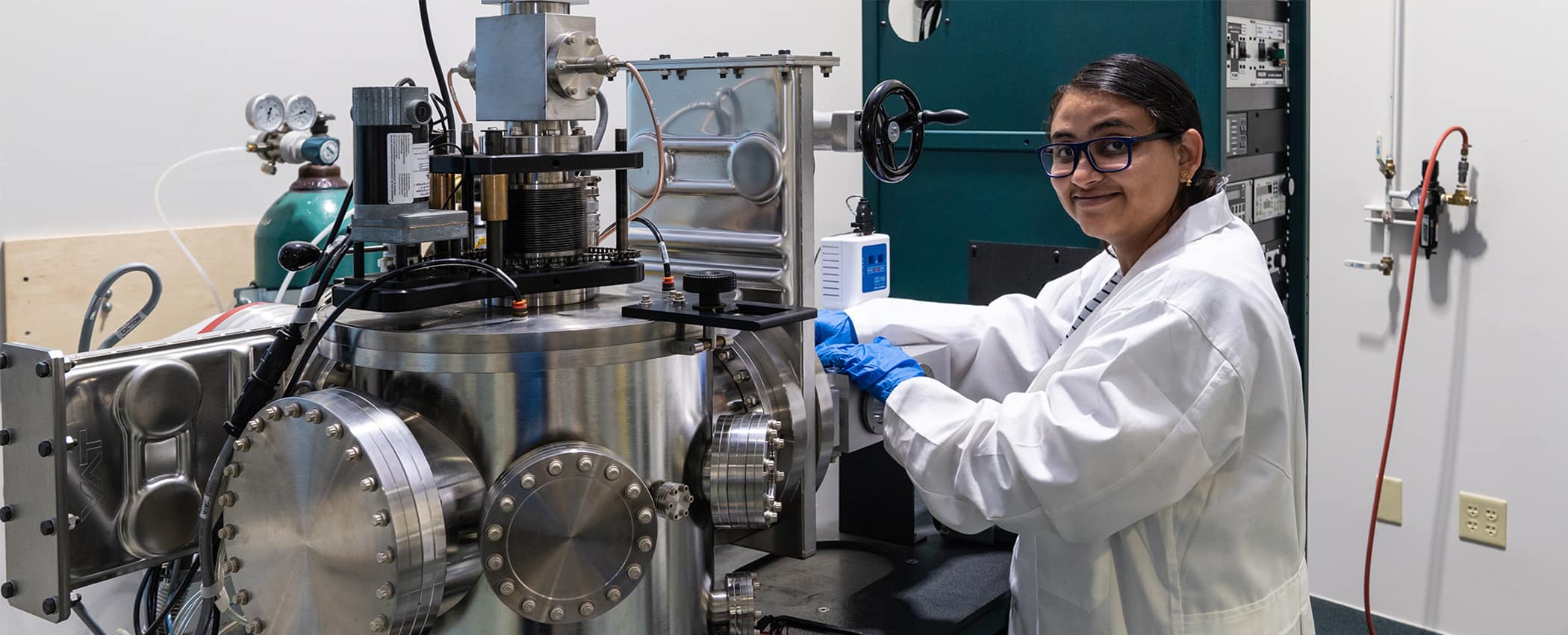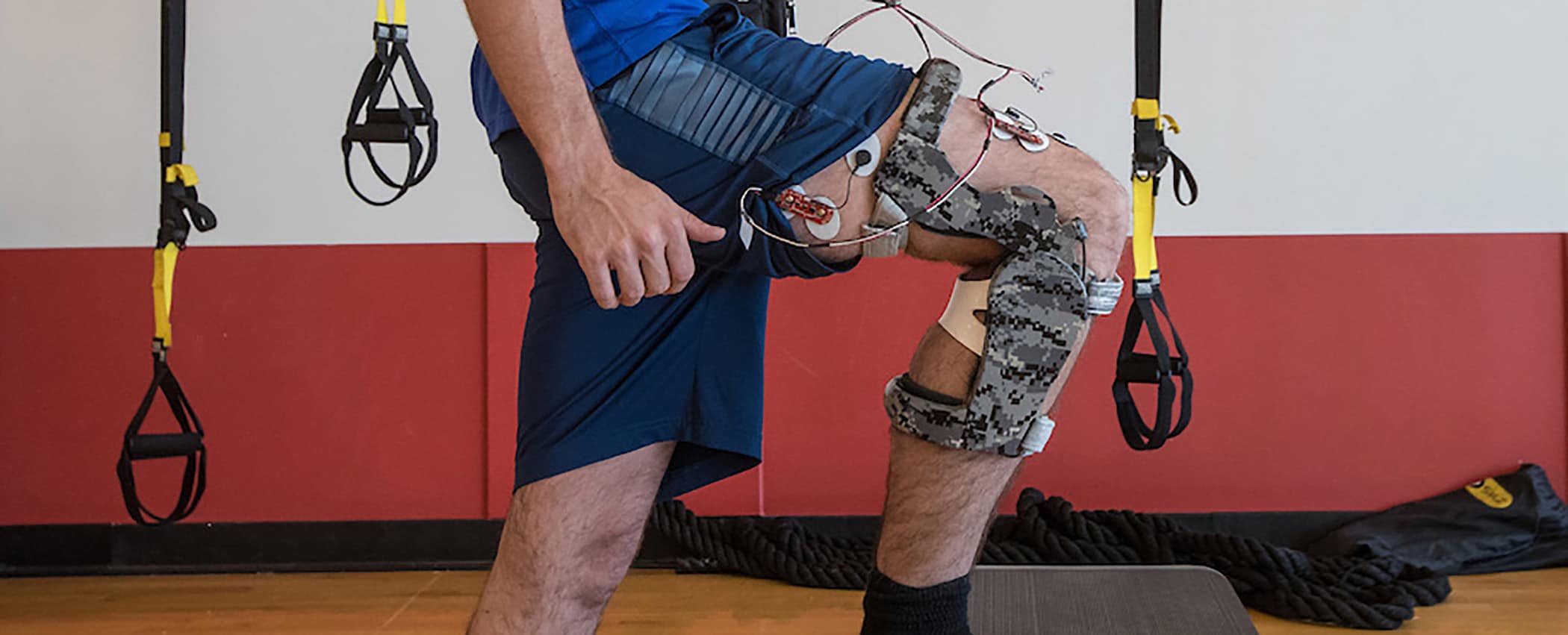
Ph.D. in
Engineering Physics
This program provides advanced education and research opportunities in a collaborative environment that offers leading-edge facilities and expert faculty guidance.
The Ph.D. in Engineering Physics offers exciting opportunities to build upon the research that is being carried out in the Department of Physical Sciences including remote sensing, and the design and implementation of electro-optical and radar systems.
The objective of the Ph.D. program in Engineering Physics is to provide advanced education and research opportunities to exceptional students by providing a research environment which fosters collaboration, creative thinking and publishing of findings in nationally recognized journals.
Students are involved in a wide variety of research projects, most of which is funded by grants from NASA, the National Science Foundation (NSF), Department of Defense (DoD) and other agencies.
The constant achievements and advancement of scientific knowledge increase the demand for highly trained scientists and engineers with specialized skills. Opportunities abound in computing, space education, medicine, robotics, software engineering, system administration, and general engineering.
Students are able to work with state of the art optical instruments, laser systems for atmospheric sounding, a laboratory plasma chamber, a space simulation chamber, supercomputer for modeling calculations, and the largest University research telescope in the southeastern United States.
DETAILS
About Engineering Physics at the Daytona Beach, FL Campus
Housed in the Department of Physical Sciences in the College of Arts and Sciences, the Ph.D. in Engineering Physics program provides advanced education and research opportunities to exceptional students.
Students will work in campus laboratories such as the Atmospheric Physics Research Lab, Control Design Lab, 1-meter Ritchey-Chretien Reflecting Telescope, Space Physics Research Lab, and Laboratory for Exosphere and Near-Space Environment Studies (LENSES).
Research emphasizes the measurement, theory, and modeling of the near-space and space neutral and plasma environment; studies of the sun and stellar activity; orbital stability and dynamics; engineering spacecraft instrumentation and remote sensing measurements; and the design and implementation of electro-optical and radar systems.
Areas of Research:
- Aeronomy/Upper-Atmospheric Physics
- Space Physics
- Spacecraft Instrumentation
- Spacecraft Systems Engineering
- Spacecraft Power and Thermal Control
- Dynamics and Control of Aerospace Systems
- Space Robotics/Autonomous Systems
- Space Weather
- Remote Sensing
The department houses more than 20 faculty members. Assistantships and fellowships are available to well-qualified students.
Student Learning Outcomes
Students will:
- Solve advanced space science and spacecraft engineering problems.
- Apply advanced spacecraft engineering core concepts.
- Develop a mastery of scientific and engineering research techniques.
- Extend the knowledge base in space science and spacecraft engineering by conceiving, planning, producing, and communicating original research.
Requirements
The Ph.D. in Engineering Physics program requires 45 credit hours beyond a master's degree. Additional 30 credit hours (including 6 credit hours of electives) are required for students with a Bachelor’s degree only. The program requirements include:
- 12 credit hours in core courses
- 6 credit hours of electives (minimum)
- 27 credit hours of dissertation (minimum)
- The successful completion of a qualifying examination
- The successful presentation of a dissertation research proposal
- The successful completion of a written dissertation
- The successful completion of a written dissertation and oral defense
The objective of this Ph.D. program is to provide advanced education and research opportunities to exceptional students by providing a research environment which fosters collaboration, creative thinking and publishing of findings in nationally recognized journals.
A CGPA of 3.0 is required for a student to remain in good academic standing and for graduation. If a student receives two grades less than a B or one grade less than a C, that student is subject to dismissal from the program. All requirements for the degree must be completed within seven years from the date the student enters the program.
Get Started Now:
Summary
45 Credits
Estimate your tuition by using the Tuition Calculator
View Financial Aid Information
Learn about our General Education
Find out about transferring credits to this degree
Learn more about our Veterans & Military benefits
View our Academic Calendar



